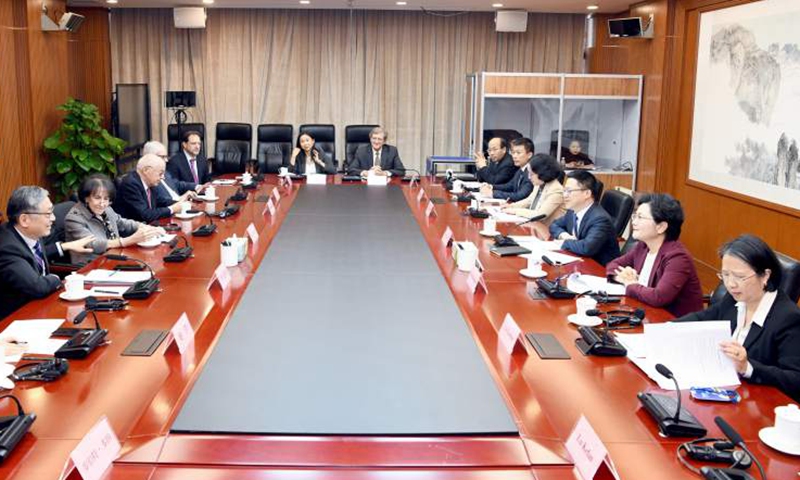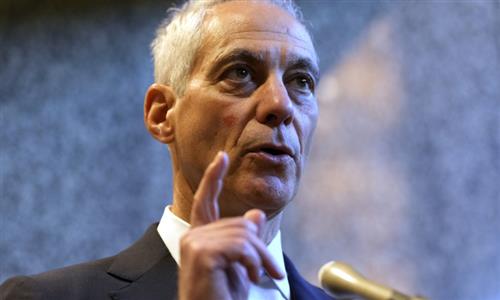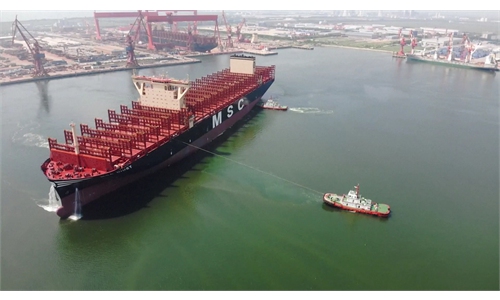
Photo: the Ministry of Finance
China's Vice Minister of Finance Liao Min recently met with several business and academic leaders from the US in Beijing. During the talks, the US representatives voiced their hope to strengthen dialogue and collaboration in trade and economic affairs, according to the Ministry of Finance (MOF) on Thursday.
The visiting representatives included the US-China Track II Economic Dialogue delegation, JPMorgan Chase President and COO Daniel Pinto, and Marcello Estevão, managing director and chief economist at the Institute of International Finance. The two sides exchanged views on topics including China's economic situation and policies, China-US economic and trade relations, and global debt issues.
Liao introduced China's comprehensive package of incremental policies during the talks, reaffirming China's confidence in meeting the annual economic growth target and effectively managing risks and challenges. He emphasized China's readiness to work with all parties to foster stable and healthy China-US trade relations, according to a MOF statement.
The US business and academic representatives expressed their appreciation of China's constructive attitude and hoped to deepen communication and collaboration in the trade and economic field, to inject positive energy into China-US relations, per the statement.
US business representatives have made frequent visits to China in recent years, communicating in-person with Chinese officials. They have consistently reaffirmed their commitment to the Chinese market and expressed their intention to expand investments in China further.
On Monday, Chinese Vice Commerce Minister Wang Shouwen met with Jay Puri, executive vice president of worldwide field operations for US chip maker Nvidia's global business in Beijing.
While Wang stressed that China supports efforts by Nvidia to continue to take root in China, and pledged to create a more favorable environment for foreign companies, Puri stated that Nvidia views China as a crucial market and will continue to strengthen communication with its Chinese partners.
The US business community has greatly benefited from China-US economic and trade cooperation, and a stable bilateral relationship serves their interests best, Song Guoyou, a deputy director of the Center for American Studies at Fudan University, told the Global Times on Thursday.
In recent years, bilateral ties have encountered some setbacks, with sometimes tensions escalating in certain areas. Against this backdrop, face-to-face exchanges are crucial for maintaining and strengthening bilateral economic and trade ties, as multinational corporations themselves play a key role in these relations, Song said.
In addition to frequent visits and exchanges, US businesses are enthusiastic participants in major expos held in China. From the China International Import Expo in Shanghai to the ongoing 2nd China International Supply Chain Expo (CISCE) in Beijing, American companies have maintained a strong presence.
Represented by Apple and Tesla, American companies are showcasing their strong collaboration with Chinese partners at the 2nd CISCE and have highlighted the importance of China in their supply chains.
On his third business trip to China this year, Apple CEO Tim Cook said at the CISCE while answering a question about Chinese supply chain partners that Apple "could not do what it does without them."
Cook visited China just a month ago where he met with Chinese Commerce Minister Wang Wentao. During the meeting, Wang stressed that abusing the national security concept is not conducive to normal economic and trade exchanges, while China is willing to help bring bilateral economic and trade relations back on track of sound and stable development through regular government-enterprise exchanges.
Cook highlighted how China's rapid development has supported Apple's fast and sustainable growth. He emphasized that Apple views China as both a vital market and a key supply chain partner, reaffirming the company's commitment to long-term development in China. It is willing to serve as a bridge for fostering communication and exchanges in China-US economic and trade relations, he said.
China's resilient economic growth and improving business environment present great opportunities for foreign enterprises, including American firms, though there are short-term political disputes and uncertainties disturbing normal economic exchanges, Song noted.
China's commitment to high-level opening up will not waver, and its long-term positive economic outlook remains unchanged. A deeper commitment to the Chinese market could yield significant benefits for American firms, while short-term headwinds will not alter the multinationals' commitment to the market, Song noted.



